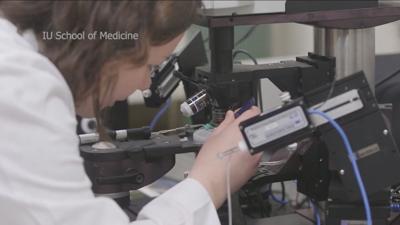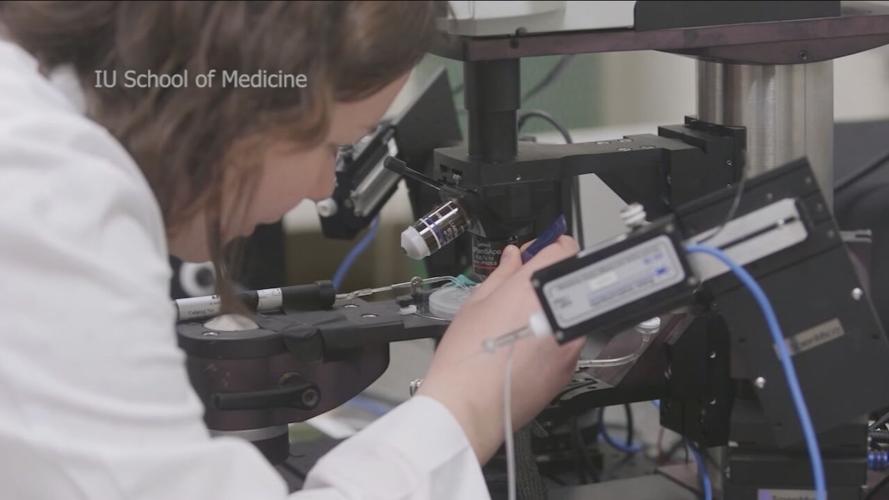LOUISVILLE, Ky. (WDRB) -- Researchers at the Indiana University School of Medicine are developing new ways to fight tumors and aggressive forms of cancer—such as triple-negative breast cancer, colorectal cancer and melanoma.
The method, outlined in a study recently published in "Science Immunology," is being called a breakthrough by scientists in approaching new cancer immunotherapy treatments.
The researchers have developed a new method to shift the behavior of immunosuppressive cells, also known as regulatory T cells, in tumors.
Regulatory T cells help protect people from getting sick, but they can also protect cancer cells. Scientists are reprogramming how T cells work so they can fight against tumors, "turning them from cancer protectors into tumor fighters."
"Regulatory T cells are very important in keeping our immune system in check, but trying to eliminate them with drugs can cause dangerous autoimmune diseases in patients, which isn't a practical approach," Dr. Baohua Zhou, co-corresponding author of the study, said. "Our goal is to modify how regulatory T cells function, so they can fight against tumors instead of protecting them."
As part of the study, researchers focused on a gene called FOXP3—which controls how regulatory T cells develop and function. Scientists say humans naturally make two versions of the protein, a full-length version and a short one. Through the study, scientists developed a novel candidate drug known as morpholino, which they said "specifically targets FOXP3 and forces regulatory T cells to predominantly produce the short version of the gene.
Trials in mice have been successful over the last few years.
"In those mice, we have really seen some tremendous results with this drug and I think we are very hopeful that within the clinical trials also we will have some really good outcomes," Dr. Naresh Singh, with the IU School of Medicine and co-author of the study, told FOX59 News.
Singh said the drug reprograms the T cells by switching which version of FOXP3 the cells express. That reprograms the cells into "helper-like cells that help other immune cells to destroy the tumor from the inside."
"This breakthrough offers a new approach towards boosting cancer immunotherapy and ultimately improving treatment outcomes for breast cancer patients," said Singh.
Going forward, there will be more research conducted to use these methods to treat other cancer types, such as colon cancer and melanoma.
To read more about the study, click here.
Top Stories:
Explosion at cooking oil plant in Shively kills 1 person, prompts investigation
Former Jeffersonville police officer sentenced for illegal firearm purchases
LMPD begins moving into new headquarters in downtown Louisville
New 2026 dates announced for Bourbon & Beyond, Louder Than Life in Louisville
Copyright 2025 WDRB Media. All Rights Reserved.














